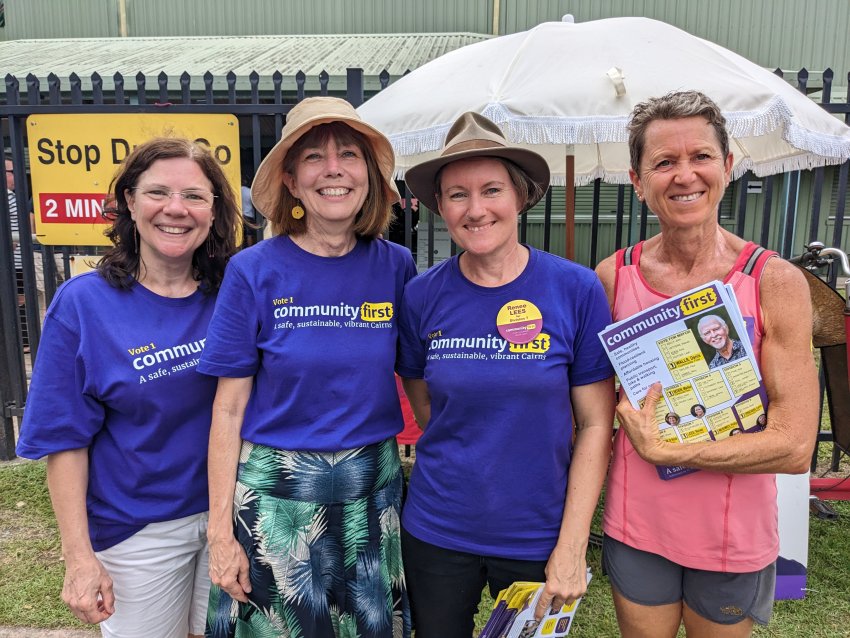
The Queensland Greens increased their representation from one to two councillors on the Brisbane City Council and won significant swings in other wards at the March 16 election.
In Far North Queensland, the new progressive team Community First (CF) did well, winning up to 24% of the vote in the Cairns Regional Council.
CF is an alliance of community activists, including from Socialist Alliance and the Greens, and independent and First Nations activists.
Denis Walls as mayoral candidate won 13% of the vote — fourth of seven candidates. Renee Lees, in division 7, won 24%, coming first in several booths.
Lees, a member of Socialist Alliance, told Green Left the campaign was “energising” and that “we feel like we’ve had an impact and we can do more”.
CF did well in other areas: 23% for Carine Visschers in division 9, 21% for Phillip Musumeci in division 8, 19% for Nicole Sleeman in division 6, 12% for Marisa Seden in division 3 and 6% for Patricia Courtney (against six other candidates) in division 2.
The conservative incumbent Unity Team lost the mayoral race but retains up to four out of nine councillors. Amy Eden, who broke from Unity claiming she would listen to community voices, is likely to become mayor.
Progressive incumbent councillor Rob Pyne (who switched from division 2) won 30% of the vote in division 5 and is likely to win the seat. Pyne is a member of Socialist Alliance, who contested as an independent.
CF was the only team to promote a progressive platform, including housing affordability, improving public transport and climate action. Its campaign was strong enough for other candidates to claim they supported its positions, or talking points.
Sleeman told GL the campaign “showed me that everyday people can come together and influence election platforms; we had more impact than I expected, and that was validated by feedback from community members”.
CF has decided to be a “council watch” and an “external opposition” to the incoming council. It also plans to contest again in four years’ time.
Lees believes the group is in a good position to “elect people [in 2028] if we do the work between now and then”.
In Brisbane, the Liberal National Party’s (LNP) Adrian Schrinner was returned as mayor with 48% of the vote. Greens candidate and former councillor Jonathan Sriranganathan won 19%.
Sriranganathan described the outcome as “easily the best Greens result we’ve ever had in Brisbane at the local government level”, although the party did not win as many wards as hoped.
The addition of one new Greens councillor understates the advance, given the swing of more than 5% on average to the Greens, much of which came from Labor.
“Labor lost some votes to the LNP and a lot of votes to the Greens, who are now beating Labor on primary votes in 10 out of Brisbane’s 26 wards,” Sriranganathan said.
The optional preferential voting system made it harder too. Emerald Moon told the Serious Danger podcast on March 17 that “if we had compulsory preferential voting, we would be winning a whole lot of these seats that [were then] on a knife’s edge”.
Labor also suffered big swings in two state by-elections on March 16, losing Ipswich West to the LNP and narrowly retaining Inala (previously held by former premier Annastacia Palaszczuk). The state election is scheduled for October.